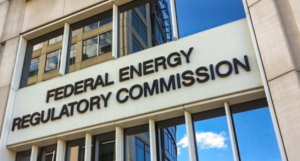FERC and NERC staff developed the joint report and its related recommendations in response to last February’s winter emergency.
________________________________________________

A glossary found on the website of the Steering Committee of Cities Served by Oncor includes definitions of important ERCOT-related terms.
Electric generation owners should design new units or retrofit existing ones to meet standards that better prepare them for future winter emergencies, according to recommendations from a preliminary federal report.
Released September 23 by staff at the nation’s top two energy utility regulatory agencies — the Federal Energy Regulatory Commission and the North American Reliability Corp. — the preliminary report includes 28 recommendations to improve grid reliability nationwide, including within ERCOT. Significantly, among the recommendations is one that calls for the creation of new mechanisms to allow generation owners to receive compensation for building or retrofitting units that meet specific weatherization standards.
FERC and NERC staff developed the joint report and its related recommendations in response to last February’s winter emergency that triggered the loss of 61,800 megawatts of generation nationwide. In Texas, the winter storm blacked out power for more than 4 million residential consumers and led to more than 200 deaths.
FERC and NERC staffers pointed to freezing of generator components and fuel issues as major causes for the outages. “The situation didn’t need to be as bad as it was,” said FERC Chairman Richard Glick.
Among their various recommendations, the FERC and NERC staffers called for power providers to meet tougher standards for protecting their plants from freezing temperatures, and for natural gas facilities to maintain plans to ensure continued operations during weather emergencies. The report recommended that generation owners identify and protect cold-weather-critical components, that generation owners establish annual training on their weatherization plans, and that they develop corrective action plans for those units that experienced outages.
 Faulting Texas
Faulting Texas
During the same meeting in which they considered the draft recommendations, FERC commissioners also took aim at the Texas market for what they perceived as its serious shortcomings. Chairman Glick, for instance, decried Texas’ decision to keep its power grid separate from other grids as a means to avoid federal oversight. Because ERCOT operates as an island — that is, with few connections to outside markets — it has a very limited ability to import power from other states.
Glick said that going alone was “very short-sighted” for Texas.
Glick also faulted policymakers generally for not following through on recommended reforms after a major winter storm of 2011. A federal report after that event called for the mandatory winterization of power plants, “but somehow that recommendation eventually was watered down to guidelines that few generators actually followed,” he said.
“I can guarantee you that this time, FERC will not let these recommendations be ignored or watered down,” he said.
FERC Commissioner Mark Christie faulted Texas for its dependence on scarcity pricing rather than enforcing more strict requirements that would ensure power availability during weather emergencies. Christie said the Texas system was “an accident waiting to happen — and it happened in February.”

FERC Chair Richard Glick
More Details about February’s Outages
Cold weather conditions from February 8 through February 20 led to outages, derates or start failures for 1,045 generating units nationwide, according to the joint report. Fifty-eight percent of units that experienced problems were fueled by natural gas, and these in turn primarily faced fuel-supply challenges, according to the report.
The report found that natural gas production supply problems in three states — Texas, Oklahoma and Louisiana — constituted over 80 percent of total natural gas production declines across the lower 48 states. These losses, in turn, affected electric generation. “Careful planning and coordination to manage the needs of the natural gas and electric systems … is important so that both systems are ultimately reliable for consumers, especially during cold weather,” the report stated.
The preliminary findings and recommendations are available on the FERC website, found here. The final report is expected in November.


 Faulting Texas
Faulting Texas